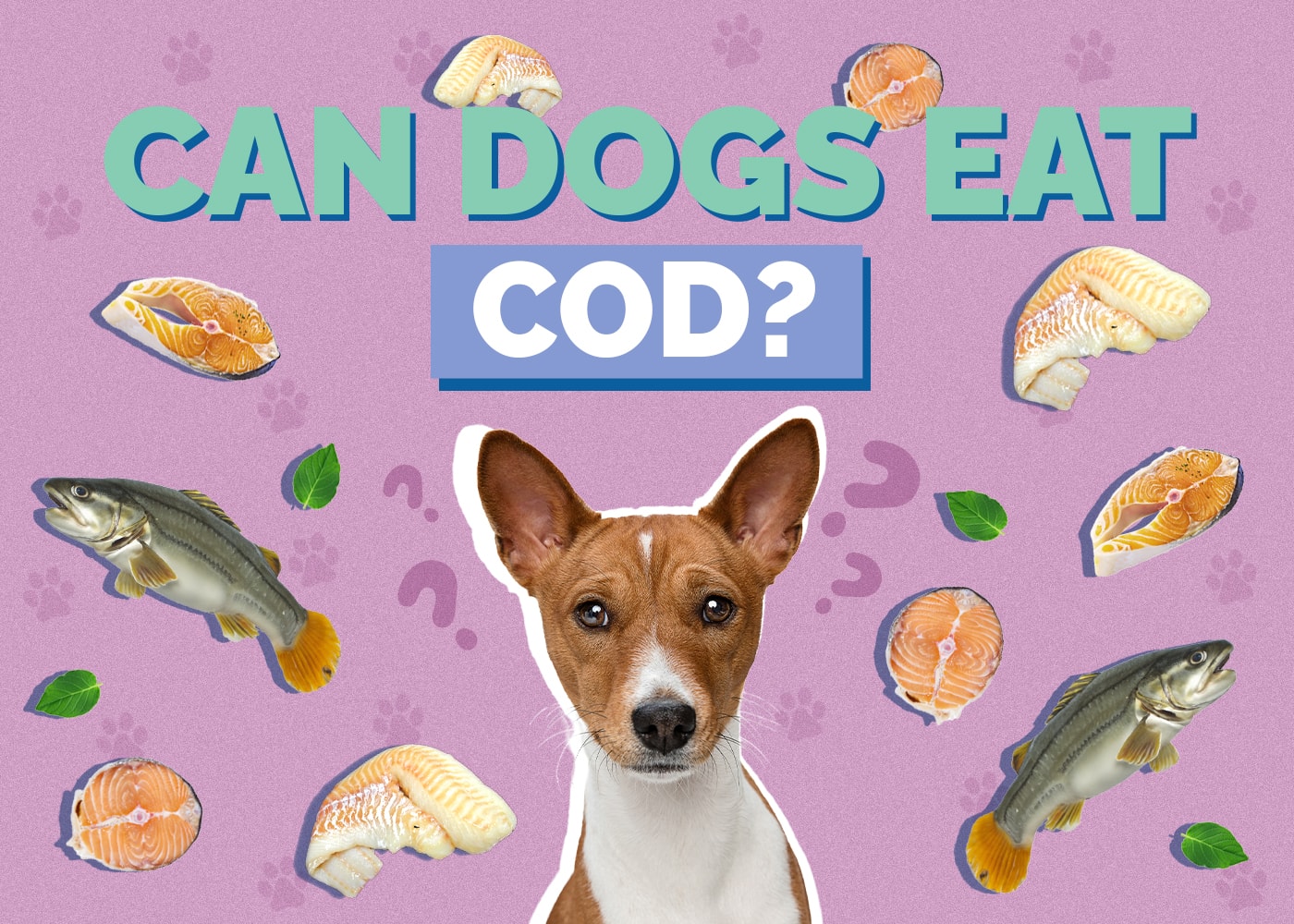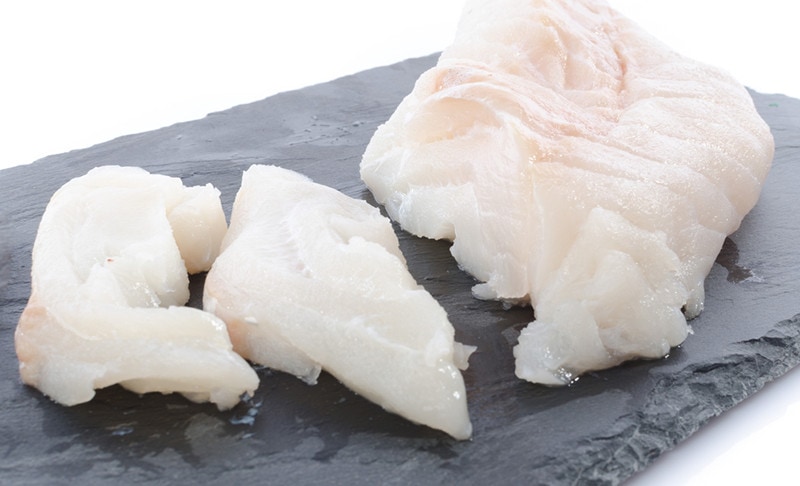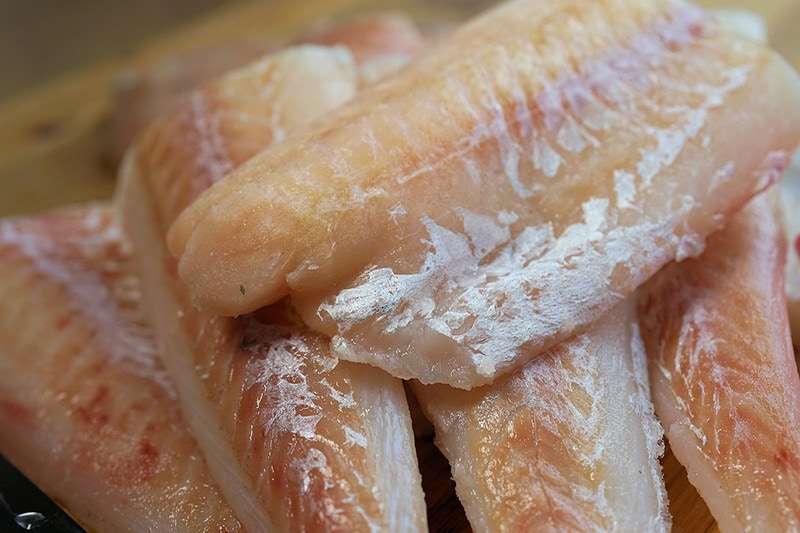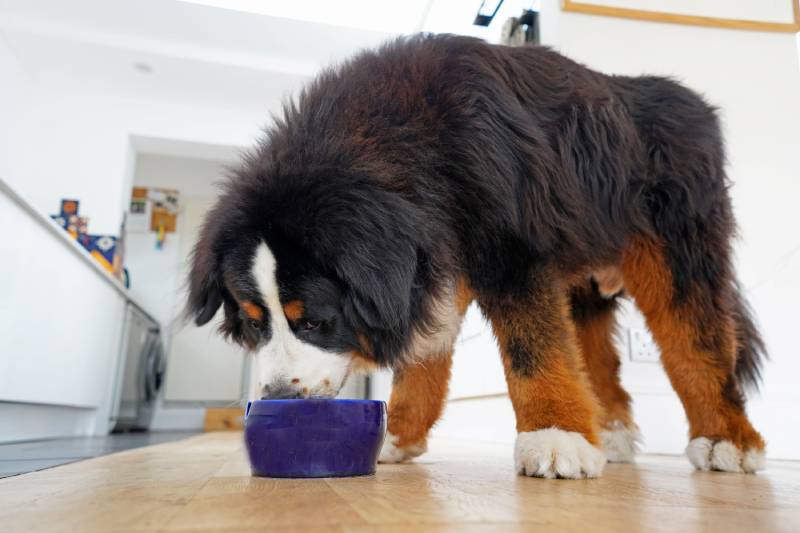Can Dogs Eat Cod? Vet Reviewed Nutrition Facts & FAQ
Updated on

Fish is an excellent nutritional choice for humans and contains vitamins, minerals, and fatty acids. There are many types of fish, with one common variety being cod. Cod is a flakey white fish that has provided many health benefits for centuries, such as lowering the risk of heart disease, aiding in brain health, lowering cholesterol, and can even improve thyroid function. With all the health benefits fish offers, does it do the same for dogs? Can dogs eat cod? If so, how healthy is it?
Thankfully, yes, dogs can eat cod.
If you’ve considered feeding cod to your dog, read on to learn more about the health benefits and what you should avoid for the safety of your dog.
How Healthy Is Cod for Dogs?
We’ve established how healthy cod is for humans, but what health benefits does cod offer our canine pals? For starters, cod is an excellent source of protein, and cod is a healthy, lean protein for dogs, providing beneficial amino acids that aid in healthy muscle and skin.1 Dogs require essential amino acids, and cod is a superb way to get these necessary amino acids into your dog’s body.
Cod also contains iodine, which will help keep your doggie’s thyroid functioning as it should. This fish also contains omega-3 fatty acids that are essential for your dog’s brain health, as well as keeping the joints healthy; it can even help prevent cognitive decline. The omega-3s in cod also help manage arthritis in dogs and offers plenty of nutrients that can help reduce inflammation, calm allergies, and soothe itchy, irritating skin.2

How to Prepare Cod for Dogs
Now that we’re aware of the health benefits cod offers doggies, we need to learn how to prepare it safely for consumption. A vital step in preparing cod for dogs is it needs to be cooked. Raw cod, or another fish for that matter, can harbor bacteria, such as salmonella.3 Salmonella can make your dog very sick and cause vomiting, diarrhea, fever, and shock, and cooking the fish kills this harmful bacteria.
You can cook cod in the oven at 400° for 10 to 12 minutes. Make sure the internal temp of the fish reaches 140 to 145°before serving. Avoid adding spices and seasonings to the fish; all your dog needs is the fish itself. You can also cook the cod in a frying pan with a bit of safflower oil.
Before feeding the cod to your dog, ensure no bones are in the fish, as bones are potentially dangerous for dogs.4 Fish bones are small and brittle and can cause damage to the intestinal tract, get lodged in the throat or mouth, and not to mention, cause a great deal of pain for your doggie. To be extra safe, ask for the fish to be deboned at the store if it hasn’t been done already, and even if it says it’s deboned, inspect it again before feeding. Also, ensure the skin is removed from the cod (usually, the skin is already removed at the store).
How Much Cod Can I Feed My Dog?
Cod is an excellent addition to your dog’s regular complete, balanced diet as an added nutritional bonus. Simply put a few chunks of the fish in with your dog’s regular food—feeding cod in this way is considered a treat, and treats should make up only 10% of your dog’s daily diet.
You can prepare home-cooked meals for your pooch with cod, but we recommend checking with your veterinarian first to ensure you add all the essential nutrients your dog needs daily.

What Other Types of Fish Are Healthy for Dogs?
Cod isn’t the only fish that’s safe for doggies to consume. Tuna, salmon, whitefish, herring, and sardines are all excellent choices with low mercury levels. You should avoid swordfish, king mackerel, tilefish, and canned albacore tuna, as these fish have high mercury content.
Tips for a Healthy Diet
Always feed your dog a complete and balanced diet with all the essential nutrients dogs require daily, such as lean protein, healthy fats, vitamins, minerals, water, and carbohydrates. Ensure any commercial dog food you buy adheres to the Association of American Feed Control Officials’ (AAFCO’s) nutritional standards, and feed an age-appropriate diet, as seniors will need different nutritional needs as opposed to growing puppies and adult dogs.

Conclusion
Cod provides excellent nutrition for both humans and dogs. It’s easy to prepare, and chances are, your doggie will love it. Be sure the cod is deboned before giving it to your dog, and when giving it as a treat, remember that treats should only account for 10% of your dog’s daily food intake. Always consult your veterinarian before switching your dog to home-cooked meals, and avoid fish high in mercury content, such as swordfish, king mackerel, tilefish, and canned albacore tuna.
See also:
Featured Image Credit: Left (Dog) Pexels, Pixabay; Right (Raw Cod) KarepaStock, Shutterstock













